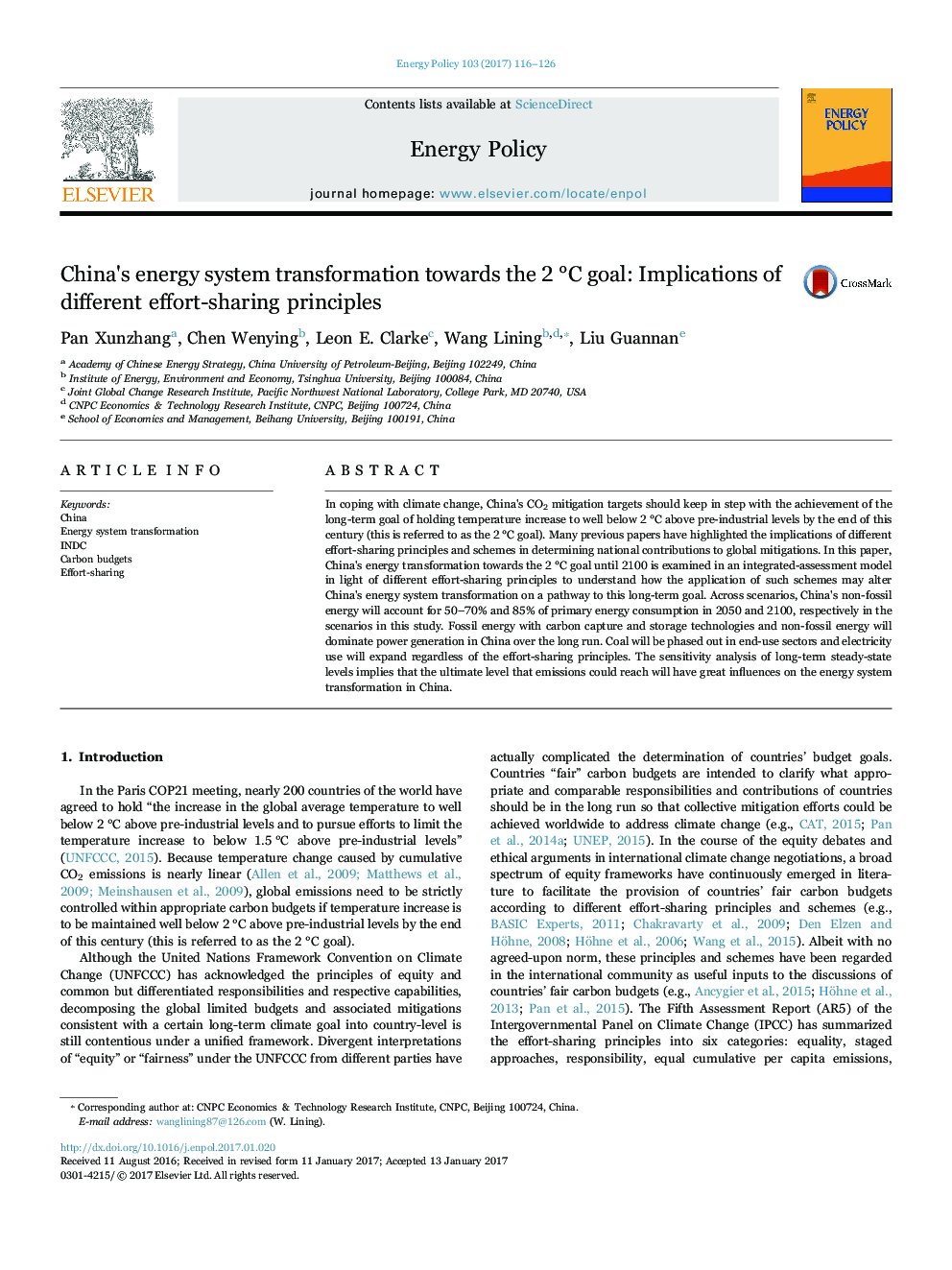| کد مقاله | کد نشریه | سال انتشار | مقاله انگلیسی | نسخه تمام متن |
|---|---|---|---|---|
| 5106157 | 1481255 | 2017 | 11 صفحه PDF | دانلود رایگان |
عنوان انگلیسی مقاله ISI
China's energy system transformation towards the 2 °C goal: Implications of different effort-sharing principles
دانلود مقاله + سفارش ترجمه
دانلود مقاله ISI انگلیسی
رایگان برای ایرانیان
موضوعات مرتبط
مهندسی و علوم پایه
مهندسی انرژی
مهندسی انرژی و فناوری های برق
پیش نمایش صفحه اول مقاله

چکیده انگلیسی
In coping with climate change, China's CO2 mitigation targets should keep in step with the achievement of the long-term goal of holding temperature increase to well below 2 °C above pre-industrial levels by the end of this century (this is referred to as the 2 °C goal). Many previous papers have highlighted the implications of different effort-sharing principles and schemes in determining national contributions to global mitigations. In this paper, China's energy transformation towards the 2 °C goal until 2100 is examined in an integrated-assessment model in light of different effort-sharing principles to understand how the application of such schemes may alter China's energy system transformation on a pathway to this long-term goal. Across scenarios, China's non-fossil energy will account for 50-70% and 85% of primary energy consumption in 2050 and 2100, respectively in the scenarios in this study. Fossil energy with carbon capture and storage technologies and non-fossil energy will dominate power generation in China over the long run. Coal will be phased out in end-use sectors and electricity use will expand regardless of the effort-sharing principles. The sensitivity analysis of long-term steady-state levels implies that the ultimate level that emissions could reach will have great influences on the energy system transformation in China.
ناشر
Database: Elsevier - ScienceDirect (ساینس دایرکت)
Journal: Energy Policy - Volume 103, April 2017, Pages 116-126
Journal: Energy Policy - Volume 103, April 2017, Pages 116-126
نویسندگان
Pan Xunzhang, Chen Wenying, Leon E. Clarke, Wang Lining, Liu Guannan,